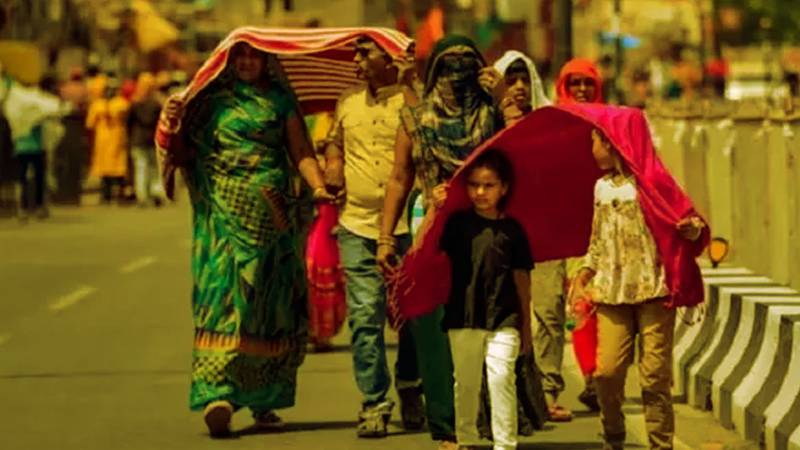
Since mid-May, a heatwave has gripped parts of northern India, with temperatures rising beyond 45 degrees Celsius (113 degrees Fahrenheit).
"This has been the most prolonged spell because it has been experienced for about 24 days in different parts of the country," said Mrutyunjay Mohapatra, the chief of India's Meteorological Department (IMD), in an interview with the Indian Express newspaper.
The mercury is projected to decline as the annual monsoon rains move north this month, but Mohapatra warns that worse will come.
"Heatwaves will be more frequent, durable, and intense if precautionary or preventive measures are not taken," he stated.
India is the world's third-largest producer of greenhouse gases, yet it has pledged to attain a net zero emissions economy by 2070, two decades after the majority of the industrialized West.
For the time being, it relies heavily on coal to generate electricity.
"Human activities, increasing population, industrialization, and transport mechanisms are contributing to a higher concentration of carbon monoxide, methane, and chlorocarbons," stated Mohapatra.
"We are endangering not only ourselves but also our future generations."
According to scientific studies, climate change is making heatwaves longer, more frequent, and more severe.
The recent heatwave has pushed temperatures in New Delhi to 49.2°C (120.5°F), matching the capital's previous record high set in 2022.
On May 29, an automated weather station in the Delhi neighborhood of Mungeshpur recorded a high temperature of 52.9 °C (127.2 °F); however, the reading was due to a defective sensor.
Elsewhere in Delhi, 17 other city stations reached a high of 49 °C (120.2 °F) on the same day.
"We constituted an expert committee, which observed readings for the next two days and found there were problems with the sensor," Mohapatra explained.
While the IMB expressed concern about the recording within hours, Mohapatra revealed for the first time that the sensor was defective.
"We inspect the AWS (automatic weather stations) every six months," he explained.
"But in between, a bird or a monkey can disrupt it."

